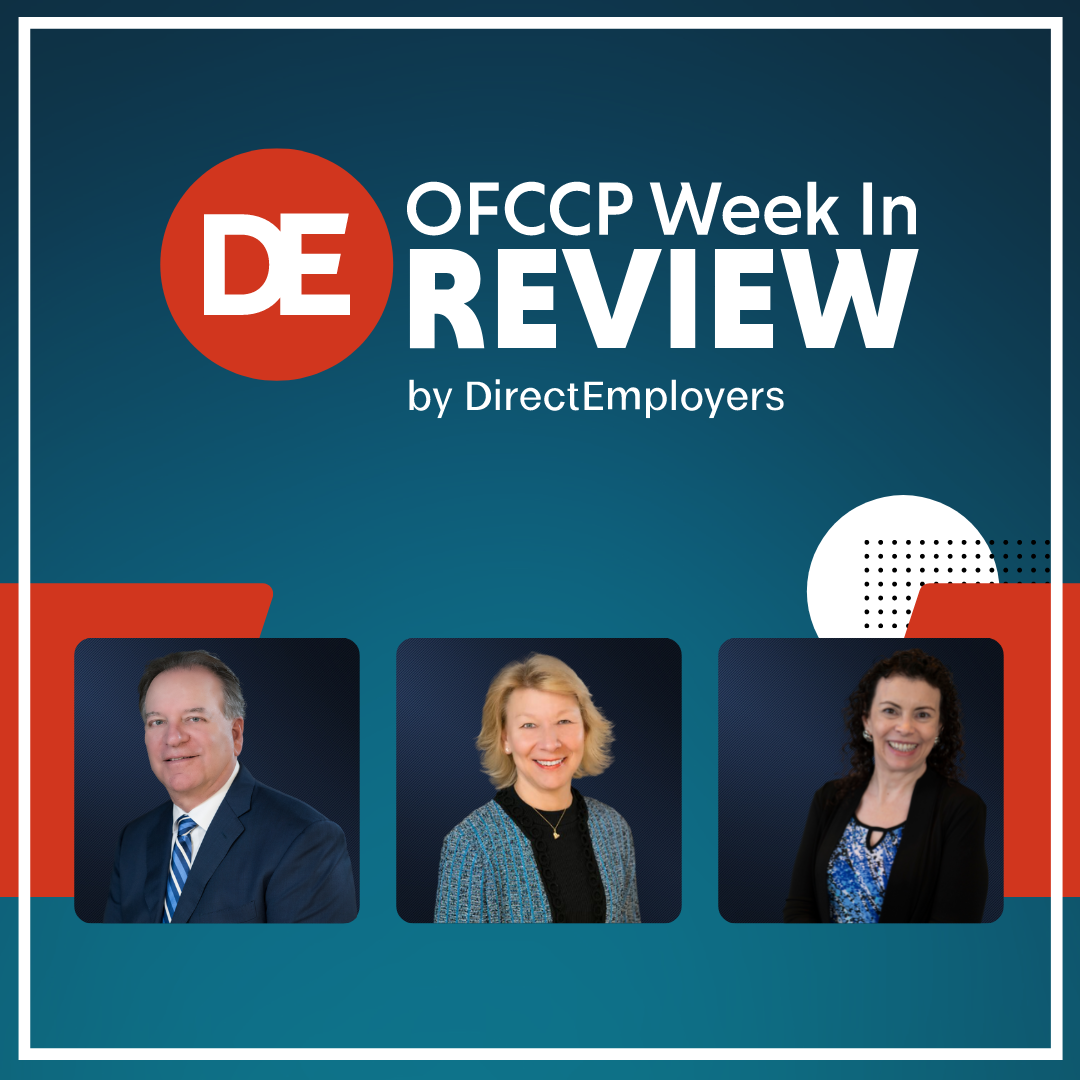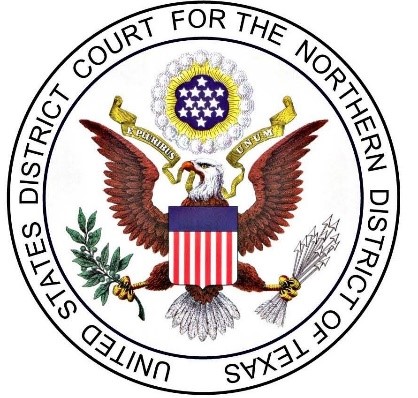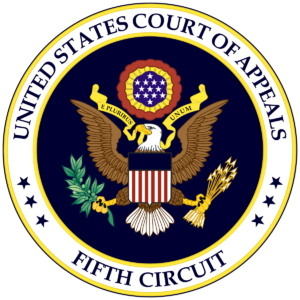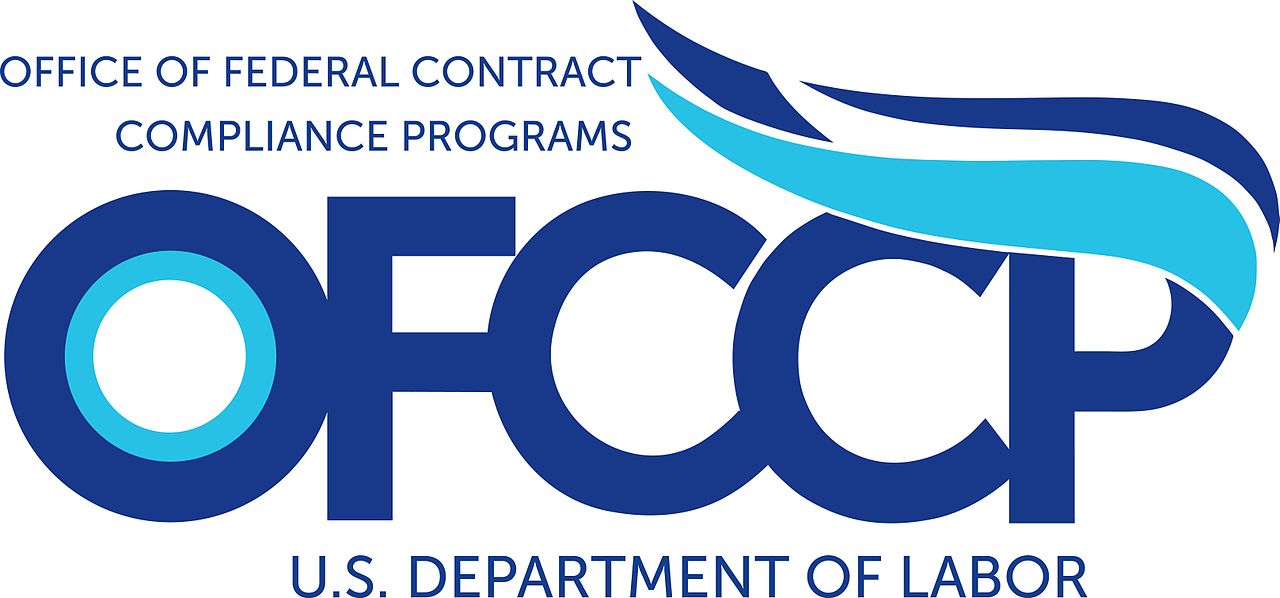 The DE OFCCP Week in Review (WIR) is a simple, fast and direct summary of relevant happenings in the OFCCP regulatory environment, authored by experts John C. Fox, Candee J. Chambers and Cynthia L. Hackerott. In today’s edition, they discuss:
The DE OFCCP Week in Review (WIR) is a simple, fast and direct summary of relevant happenings in the OFCCP regulatory environment, authored by experts John C. Fox, Candee J. Chambers and Cynthia L. Hackerott. In today’s edition, they discuss:
- U.S. Justice & Education Departments Issued Joint Resources on Lawfully Advancing DEI Following Supreme Court’s University Admissions Decision
- Federal Judge Paused Implementation of Order Requiring Southwest Airlines Attorneys to Attend “Religious Liberty Training”
- U.S. Fifth Circuit Court of Appeals Ruled That Title VII Actionable Adverse Employment Actions Not Limited to Only “Ultimate” Employment Decisions
- In Brief
- Looking Ahead: Upcoming Date Reminders
Monday, August 14, 2023: U.S. Justice & Education Departments Issued Joint Resources on Lawfully Advancing DEI Following Supreme Court’s University Admissions Decision

- a three-page Dear Colleague Cover Letter ;and
- a seven-page Questions and Answers (“Q&A”) document.
The publications follow the U.S. Supreme Court’s recent decision in Students for Fair Admissions, Inc. v. President and Fellows of Harvard College, (Case No. 20–1199; June 29, 2023; abbreviated hereafter as “SFFA”).
In that decision, the High Court held that the consideration of race in the admissions practices of the University of North Carolina and Harvard College violated the Equal Protection Clause of the Fourteenth Amendment and Title VI of the Civil Rights Act of 1964 (a law that prohibits discrimination based on race, color, or national origin in programs or activities receiving federal financial assistance, including those conducted by colleges and universities).
What Did the Departments Say?
The Q&A document contains three items. The first item explains the SFFA decision. The second item notes that the SFFA ruling “limited the ability of institutions of higher education to consider an applicant’s race in and of itself as a factor in deciding whether to admit the applicant.” The departments stated, however, that “institutions of higher education remain free to consider any quality or characteristic of a student that bears on the institution’s admission decision, such as courage, motivation, or determination, even if the student’s application ties that characteristic to their lived experience with race—provided that any benefit is tied to ‘that student’s’ characteristics, and that the student is ‘treated based on his or her experiences as an individual[,]’ and ‘not on the basis of race’” (citing the SFFA decision at page 40).
The third item contains a lengthy discussion regarding what other steps institutions of higher education can take to achieve a diverse student body. According to the departments, those include:
- Targeted Outreach, Recruitment, and Pathway Programs (pages 3-4);
- Collection of Demographic Data (page 5) – “In collecting and using data, institutions should ensure that the racial demographics of the applicant pool do not influence admissions decisions,” the document cautions.;
- Evaluation of Admissions Policies (pages 5-6) – this evaluation could include legacy admissions, first-generation students, financially disadvantaged students, and a student’s geographic background as well as the mechanics of the admissions processes; and
- Student Yield and Retention Strategies and Programs (page 6).
“Although this decision changes the landscape for admissions in higher education, it should not be used as an excuse to turn away from longstanding efforts to make those institutions more inclusive,” Associate U.S. Attorney General Vanita Gupta said at an event announcing the resources. He continued: “The Supreme Court’s opinion recognized what we know to be true: that race can be relevant to a person’s life or lived experience, and may impact one’s development, motivations, academic interests[,] or personal or professional aspirations. That impact can still be considered in university admissions.”
In a related blog, Assistant Attorney General Kristen Clarke noted that the documents “[distill] the Court’s core holding and offers examples of steps colleges and universities can lawfully take to achieve a student body that is diverse across a range of factors, including race and ethnicity.”
Education Department Promised a “Promising Practices” Report
An August 14 U.S. Department of Education email to stakeholders reported that in September, the Department “will produce a report elevating promising practices to build inclusive, diverse student bodies, including how colleges can give serious consideration to measures of adversity when selecting among qualified applicants. This includes accounting for the financial means of a student or their family; where a student grew up and went to high school; and personal experiences of hardship or discrimination, including racial discrimination, in their admissions process.”
Reminder of Employer Resources
We reported last month that OFCCP updated its Affirmative Action FAQ Section to address the SFFA ruling. For more information on how the SFFA decision impacts employers, see our stories here and here. Moreover, be sure to read John Fox’s Four-Part Series discussing the implications for employers of the SFFA decision. PART I discusses the “Pipeline Problem” and suggested “Life Preserver” Solutions. PART II covers how ”Goals Are Not Unlawful Quotas.” PART III discusses “Doing Right the Right Way: The Renewed Commitment to Hiring African Americans Is Not A ‘Greenlight’ to Unlawfully Discriminate Against Other Protected Groups.” PART IV covers “How to Lawfully Engage in Race-Based Employment Decisions If You Choose to Do So.”
Thursday, August 17, 2023: Federal Judge Paused Implementation of Order Requiring Southwest Airlines Attorneys to Attend “Religious Liberty Training”
Meanwhile, Advocacy Group Filed Misconduct Complaint Against Judge
Jury Previously Awarded Former Flight Attendant >$5M in Underlying Abortion Views Bias Suit

Judge Starr granted the temporary pause to allow the Court time to consider the parties’ arguments on SWA’s request for a longer stay pending the outcome of the airline’s appeal to the Fifth Circuit. Judge Starr had issued his earlier August 7 order as a sanction resulting from a contempt finding against SWA in a fired former flight attendant’s Title VII religious discrimination case.
Meanwhile, a judicial reform advocacy group filed a misconduct complaint against Judge Starr for having issued his order requiring the training. These developments are the latest in the ongoing litigation saga of the case Carter v. Transport Workers Union Local 556 & Southwest Airlines Co. (N.D. Texas, Case No. 3:17-CV-2278-X).
Sanction Order
In July 2022, a Federal District Court jury in Dallas awarded the former SWA flight attendant over $5 million after finding in her favor in a lawsuit against the airline and her union. Among other findings, the jury determined that the airline discriminated against the flight attendant because of her sincerely held religious beliefs and failed to accommodate her religious beliefs in violation of Title VII. For more details on that jury verdict, see our story here. In December 2022, Judge Starr ordered Southwest to reinstate the flight attendant and take several other remedial actions.
In his August 7, 2023 contempt and sanctions order, Judge Starr concluded that the airline did not follow his December 2022 order in several respects. Last week, we reported that Judge Starr gave SWA attorneys until Monday, August 28 to attend at least eight hours of training conducted by the Alliance Defending Freedom (ADF).
Judge May Extend Temporary Stay Order Pending Appellate Outcome
On Thursday, the judge granted in part SWA’s emergency motion for a stay of the August 7 contempt and sanctions order. He granted a temporary, 30-day administrative stay and also allowed the plaintiff flight attendant to object to SWA’s plea for a longer stay pending the outcome of the airline’s appeal to the Fifth Circuit. The flight attendant has until Thursday, August 24 to file any such objection, and, if she does file an objection, SWA has until Monday, August 28 to reply. If the Court denies Southwest’s request for a stay, Southwest may use any remaining time in the 30-day administrative stay to seek a stay from the Fifth Circuit.
Advocacy Group’s Misconduct Complaint Asserted Order Sets “Dangerous Precedent”
On Tuesday, judicial reform advocacy group Fix the Court filed a judicial misconduct complaint with the Fifth Circuit accusing Judge Starr of violating the Code of Conduct for United States Judges and asserting that a judge should not assign a sectarian organization of any faith to carry out an attorney sanctions order.
In the complaint, Fix the Court’s Executive Director, Gabe Roth, claimed that Judge Starr’s order “sets a dangerous precedent.” While ethics training can sometimes constitute a fair sanction, the judge’s “religion-based” sanction is “unprecedented,” according to Roth.
Specifically, Roth asserted that Judge Starr’s order violated Canon 3 of the Code of Conduct, which provides that a federal judge “should perform the duties of the office fairly, impartially and diligently.”
Friday, August 18, 2023: U.S. Fifth Circuit Court of Appeals Ruled That Title VII Actionable Adverse Employment Actions Not Limited to Only “Ultimate” Employment Decisions
Actionable Adverse Actions Need Only Impact “Terms & Conditions” of Employment
Pending U.S. Supreme Court Review Expected to Address This Issue

Sitting “en banc” – which means that all of the appellate court’s available judges heard the case and voted on the decision, the Fifth Circuit wrote: “…we have long limited the universe of actionable adverse employment actions to so-called ‘ultimate employment decisions.’ We end that interpretive incongruity today.”
To that end, the appeals court held:
“To adequately plead an adverse employment action, plaintiffs need not allege discrimination with respect to an ‘ultimate employment decision.’ Instead, a plaintiff need only show that she was discriminated against, because of a protected characteristic, with respect to hiring, firing, compensation, or the ‘terms, conditions, or privileges of employment’— just as the statute says.”
The phrase “ultimate employment decision” means employer actions such as hiring, firing, promoting, compensation determinations, and granting leave, as opposed to other types of employment decisions which arguably might have some tangential effect upon those ultimate decisions, such as scheduling and other decisions involving working conditions.
In its 18-page majority decision, the Fifth Circuit stated that the phrase “ultimate employment decision” does not appear anywhere within the text of Title VII. As such, it “thwarts legitimate claims of workplace bias.” Accordingly, workers within the jurisdiction of the Fifth Circuit (Louisianna, Mississippi, and Texas) will have an easier time establishing employer violations of Title VII in the future.
How We Got Here
The case, Hamilton v. Dallas County (Case No. 21-10133), involved a sex-based scheduling system for jail guards in the Dallas County Sheriff’s Department. Nine female detention officers sued the county alleging that changes to the policy for scheduling days off constituted sex discrimination under Title VII and the Texas Employment Discrimination Act. This scheduling policy allowed female officers equal time off, but only during weekdays or by a combination of one weekday and one weekend day. In August 2022, a three-judge panel of the Fifth Circuit held, based on the circuit’s own precedent, that the policy did not violate Title VII.
Finding in favor of the plaintiffs, the en banc Fifth Circuit on Friday concluded that “giving men full weekends off while denying the same to women—a scheduling policy that the County admits is sex-based—states a plausible claim of discrimination under Title VII.”
Recent Supreme Court Decisions Favored Text Over Court Precedent
Two circuit judges filed concurring opinions. In one, Judge James C. Ho noted that two recent U.S. Supreme Court decisions – Groff v. DeJoy (Case No. 22-174; June 29, 2023) and Students for Fair Admissions, Inc. v. President and Fellows of Harvard College, (Case No. 20–1199; June 29, 2023) – “the Court favored text over longstanding atextual precedent. And it did so knowing full well that both decisions leave unanswered a whole range of questions that courts will now have to confront in future cases.” (See our stories on Groff here and Students for Fair Admissions here.
Editor’s Note: We find it downright incredible in 2019 (when the Dallas County Sheriff’s Department ordered the new work scheduling policy) that the Department thought it was a good business judgment to treat male and female Correctional Officers differently simply based on their gender, regardless whether the Department thought it was legal to do so.
The Fifth Circuit noted in its en banc decision that the Department intended to discriminate based on sex and knew it was discrimination (“…the County does not dispute its discriminatory intent”). [footnote 18 omitted]. The Fifth Circuit’s en banc decision footnote 18 is illuminating as it incorporates by reference this passage from the federal District Court’s (i.e., the trial court’s) decision reported at 42 F.4th 550, 553:
“Before April 2019, Plaintiffs-Appellants’ schedules were based on seniority. However, in or around April 2019, [footnote omitted] a gender-based scheduling policy went into effect and only male officers were given full weekends off whereas female officers were allowed two weekdays off or one weekday and one weekend day off. Plaintiffs-Appellants alleged that “[w]hen [they] asked the [s]ergeant how scheduling was determined, he stated that it was based on gender” and explained that it would be safer for the male officers to be off during the weekends as opposed to during the week.2”
Footnote 2 of the trial court’s opinion is worth repeating here (and get ready to envision the face-palm emoji leaping to mind):
“2. Relevant here, male and female officers perform the same tasks and the number of inmates during the week is the same number on weekends.”

At some point, it is useful for managers to just take a moment for a commonsense reality check and ask the question: “Is this a good idea, all things and all employees considered, for our business?” If a manager is missing a moral streak, companies can always fall back on the old stand-by “commonsense question” to ask: “Would you want someone to treat your son or daughter this way”?
Similar, Pending Supreme Court Case
On June 30, 2023, the U.S. Supreme Court agreed to hear Muldrow v. City of St. Louis (Case No. 22-193). There, the federal Eighth Circuit Court of Appeals followed its binding circuit precedent to hold that discriminatory job transfers (and denials of requested transfers) are lawful under Title VII when they do not impose “materially significant disadvantages” on employees. The High Court limited its review to the following question:
“Does Title VII prohibit discrimination in transfer decisions absent a separate court determination that the transfer decision caused a significant disadvantage?”
In Brief
Wednesday, August 16, 2023: OFCCP Announced Updates to Its Substance Use Disorder Webpage

Reacting to this dismal and concerning news, OFCCP announced via an email to stakeholders that it had updated its substance use disorder webpage. Citing the U.S. Equal Employment Opportunity Commission’s Guidance on “Applying Performance and Conduct Standards to Employees with Disabilities,” OFCCP explained in the email that, in certain circumstances, individuals with substance use disorder may constitute qualified individuals with disabilities under Section 503 of the Rehabilitation Act of 1973 (Section 503).
Individuals with substance use disorder (including alcohol) may be considered qualified individuals with disabilities if they are no longer engaged in the illegal use of drugs and have either been successfully rehabilitated or are participating in a supervised rehabilitation program. An individual with alcohol addiction may also qualify as an individual with a disability. “Today, millions of Americans are in recovery and are no longer engaged in substance use,” the OFCCP webpage notes.
OFCCP’s email did not identify which components of its webpage it had updated. Nonetheless, OFCCP intended its notification to remind federal contractors that its webpage contained resources to assist contractors with Section 503 compliance, including a “Best Practices” document.
Thursday, August 17, 2023: OFCCP Set September 5th Date for Webinar on “Pre-Enforcement Notice & Conciliation Procedures” Final Rule

OFCCP published the Final Rule in the Federal Register on Friday, August 4. It substantially modified the reform procedures and standards OFCCP had been using since 2020 when issuing pre-enforcement notices and engaging in the conciliation process regarding agency claims in OFCCP audits that a federal contractor had engaged in alleged unlawful discrimination. (See our story here.)
The agency announced the webinar via email. OFCCP also has previously published a landing page on the Final PDN Rule.
Looking Ahead:
Upcoming Date Reminders
Editor’s Note: The back half of August is shaping up to be a potentially busy period of USDOL regulatory activity.June 2023: U.S. DOL WHD’s current target date (now overdue) to publish its Final Rule on Nondisplacement of Qualified Workers Under Service Contracts (RIN: 1235-AA42)
June 2023: U.S. OSHA’s current target date (now overdue) to publish its Final Rule on Occupational Exposure to COVID-19 in Healthcare Settings (RIN: 1218-AD36)
August 23, 2023 (2:00 pm ET): DirectEmployers/USCIS Webinar on 2023 Revised Form I-9
August 28, 2023: Employers required to file Form LM-10 (union “persuader reports”) must begin using revised version of the form
August 2023: U.S. DOL WHD’s current target date for its Final Rule on Employee or Independent Contractor Classification Under the Fair Labor Standards Act (RIN: 1235-AA43)
August 2023: U.S. DOL WHD’s current target date for its Notice of Proposed Rulemaking on Defining and Delimiting the Exemptions for Executive, Administrative, Professional, Outside Sales and Computer Employees (RIN: 1235-AA39) (The WHD submitted this proposal to the OMB on July 12, 2023)
August 2023: U.S. NLRB’s target date for its Direct Final Rule on Quickie Election Procedures (RIN: 3142-AA18)
August 2023: U.S. NLRB’s current target date for its Final Rule on Standard for Determining Joint-Employer Status (under the NLRA) (RIN: 3142-AA21)
August 2023: U.S. NLRB’s current target date for its Final Election Protection Rule (RIN: 3142-AA22)
August 2023: U.S. DOL’s OASAM’s current target date to publish Proposed Rule on “Revision of the Regulations Implementing Section 188 of the Workforce Innovation and Opportunity Act (WIOA) to Clarify Nondiscrimination and Equal Opportunity Requirements and Obligations Related to Sex” (RIN: 1291-AA44)
September 5, 2023: OFCCP’s Final Rule on “Pre-Enforcement Notice & Conciliation Procedures” takes effect
NEW September 5, 2023 (2:00 – 3:30 pm ET): OFCCP webinar covering Its Final Rule on “Pre-Enforcement Notice & Conciliation Procedures”
September 19, 2023: Comments due on the Office of Personnel Management’s Proposed Rule – “Recruitment and Selection Through Competitive Examination, and Employment in the Excepted Service (Rule of Many)”
September 30, 2023: 2023 VETS-4212 filing deadline – the reporting cycle began on Tuesday, August 1, 2022
October 2, 2023: Deadline for comments on DHS/ICE’s proposed pilot procedure program & information collection for non-E-Verify participants as to remote I-9 Form document inspections
October 10, 2023: Comments due on EEOC’s Proposed Regulations to Implement the Pregnant Workers Fairness Act
December 2023: OFCCP’s current target date for its Notice of Proposed Rulemaking to “Modernize” Supply & Service Contractor Regulations (RIN: 1250-AA13)
December 2023: OFCCP’s current target date for its Final Rule on “Technical Amendments” to Update Jurisdictional Thresholds & Remove Gender Assumptive Pronouns (RIN: 1250-AA16)
December 29, 2023: Statutory deadline for EEOC regulations to enforce the Pregnant Workers Fairness Act
January 1, 2024: U.S. DOL OSHA’s Final Rule Requiring Covered High-Hazard Industry Employers to Electronically Submit Injury & Illness Records Takes Effect
April 3 – April 5, 2024: DEAMcon24 New Orleans
June 2024: OFCCP’s current target date for its Notice of Proposed Rulemaking to Require Reporting of Subcontractors (RIN: 1250-AA15)
SUBSCRIBE.
Compliance Alerts
Compliance Tips
Week In Review (WIR)
Subscribe to receive alerts, news and updates on all things related to OFCCP compliance as it applies to federal contractors.

